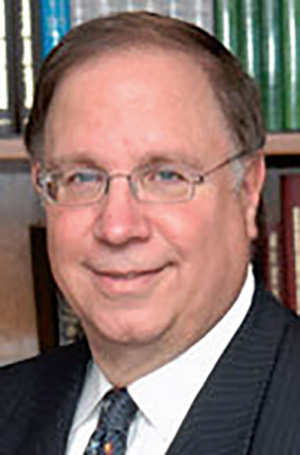
Part IX
Despite volunteering in large numbers, Jewish doctors, except for malariologists, were not eagerly welcomed by the British Army because of a purported British desire to balance the number of Arab and Jewish physicians in their service. However, given the small number of Arab physicians in Palestine, the British more likely feared that Jews of German and Austrian descent would not be loyal to the Allied cause, prompting the withdrawal of many doctors’ applications. Other problems included differences in medical training, languages, communication skills and an aversion to foreigners.
Some British even questioned the wisdom of having any doctors from Palestine serve with the army. Out of the 400 physicians who answered the appeal by the Jewish Agency and the Medical Association to enlist in the British army, 200 were accepted. They served in various British military units in Ethiopia, Iraq, Egypt, Transjordan, India, Italy, Greece, Iran, Austria, Palestine, Malta, Libya and Tunisia.
Malaria Specialists
Malaria specialists, however, were quickly inducted since malaria was considered the primary threat. Anti-malaria units accompanied troops wherever they went. They evaluated the danger of malaria from local populations to determine the most secure route for the troops to traverse past towns and villages. The specialists performed a defensive role by providing drugs, eradicating mosquitoes and supplying mosquito netting and repellent creams.
The initial 10 anti-malaria units in the British army, four of which were commanded by Jewish malariologists from Palestine, were sent as out as “vanguards” and served in Egypt, Libya, Tunisia, Lebanon, Syria, Iraq and Palestine. They forged the way by using D.D.T. against mosquitoes and managed the anti-malaria operation in the Burma jungles. Protecting soldiers on the battlefield in Greece, Italy, North Africa and other Far Eastern countries with mosquito repellant ointment was of paramount concern.
Jewish Factories and Farms
Jewish factories and farms were mobilized to provide supplies to the Allies in the Middle East. All the land mines used against Rommel’s forces were produced by Jewish factories in Palestine, as were all the silk parachutes. Optical instruments for the Royal Air Force and Navy, for example, were manufactured and repaired by a Russian Jew who had been the former technical director of the Zeiss Works at Jena. Other items produced by the Yishuv included medical and electric instruments, geodetic instruments, hospital equipment, cables, wires, ambulances and army field kitchens.
Anti-Tank Components, Mines, Machine Gun Parts, Ship Propellers
Jewish factories also produced anti-tank components, 3 million mines, machine gun parts, propellers for ships, 6 million two-gallon containers and accumulators for tanks and the British Air Force, several hundred tons of cast-iron shrapnel balls and port installations for the British Army in Alexandretta on the Mediterranean coast of Turkey. They repaired guns, ships and machinery, and built small naval boats and two minesweepers.
Food, Cigarettes and Alcohol
Jews assisted the war effort additionally by providing fresh milk, vegetables, citrus fruits, bread, cigarettes, beer and wine to the British military across the Middle East and North Africa. Significant amounts of wheat were milled for the British, and cold-storage facilities were made accessible to them. By increasing production of Jewish agriculture by 70% during the war, precious shipping space was freed up for more vital military requirements.
Textile Industry
Considerable contributions were made from the textile industry including military and hospital tents, camouflage nets, uniforms, underwear, socks, knitted items, ropes, furs for the pilots, fur gloves, flying vests, rubber boots and life-saving items. More than 1 million boots and shoes were produced, as were large numbers of books and pamphlets.
Chemical Products
Ether, a highly flammable anesthetic, was manufactured in a factory near Tel Aviv. This factory became the single source of that product for all the military hospitals in the region. Other chemical products produced were dry ice, fertilizers, acetone, pharmaceutical bromides and methyl bromides used as a fire extinguisher on aircraft.
Airport Runways, Bridges, Harbor Installations and Airfields
Jewish engineers, building contractors, architects and laborers reconstructed airport runways and built bridges, harbor installations and airfields throughout the Middle East as far as Iran and Bahrain. During the El Alamein campaign, which led to the retreat of the German Afrika Korps and an Allied victory 150 miles west of Cairo, they built sea and land fortifications.
Tropical Disease Education
Hadassah Medical Center gave courses for military officers on dysentery, malaria, typhoid, typhus and other tropical diseases. A procedure to hasten the healing process of wounds was developed and shared with the medical personnel of the UN. British Army scientists and doctors had use of the laboratories to pursue their own research. British military hospitals used the laboratory of pathological physiology for blood examinations and to test the vitamin content of food for the troops. The Polish government awarded the head of the Hadassah bacteriology department the Golden Cross of Merit for developing an anti-typhus vaccine used by Polish troops and refugees. Dysentery vaccines were prepared for Polish troops and refugees in the Middle East and Russia.
Electromagnetic Mine Detector
The electrotechnical laboratory developed an electromagnetic mine detector. Workshops assembled emergency generators, produced special frames for guns, tank parts, 96 types of tools to assemble and dismantle aircraft and a wide variety of measuring instruments and machines. The metallographic laboratory examined large numbers of materials to determine their strength, inner structure, chemical reactions and other potential issues.











